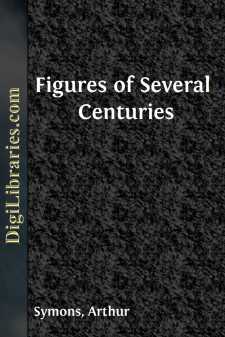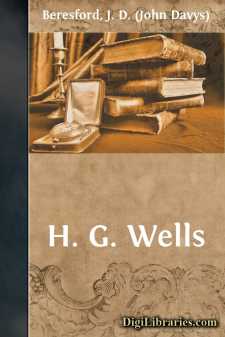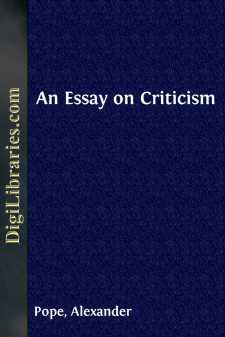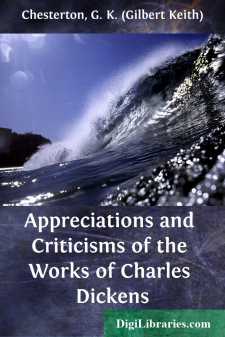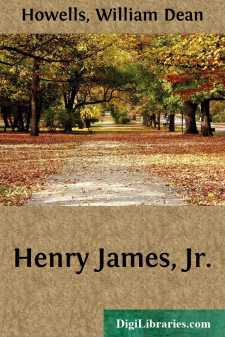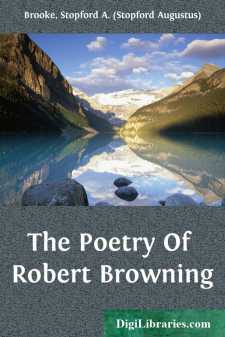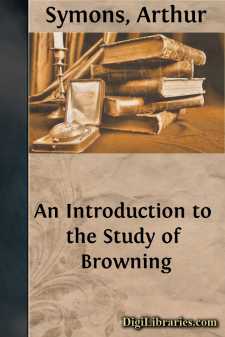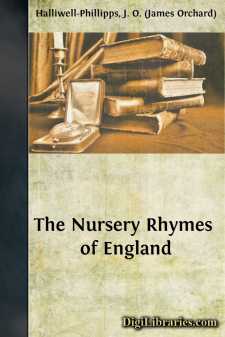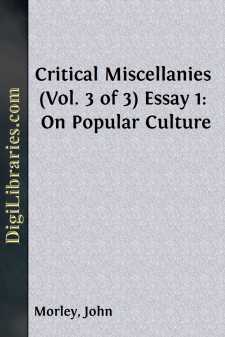Literary Criticism
- American 18
- Ancient and Classical 3
- Asian 1
- Australian & Oceanian 1
- Books & Reading 8
- Caribbean & Latin American 2
- Drama 2
- English, Irish, Scottish, Welsh 49
- European 7
- General
- Horror 1
- Humor 2
- Jewish 2
- Medieval 2
- Middle Eastern 3
- Poetry 7
- Renaissance 6
- Russian & Former Soviet Union 1
- Shakespeare 27
General Books
Sort by:
by:
Arthur Symons
SAINT AUGUSTINE The Confessions of St. Augustine are the first autobiography, and they have this to distinguish them from all other autobiographies, that they are addressed directly to God. Rousseau's unburdening of himself is the last, most effectual manifestation of that nervous, defiant consciousness of other people which haunted him all his life. He felt that all the men and women whom he...
more...
INTRODUCTION THE NORMALITY OF MR WELLS In his Preface to the Unpleasant Plays, Mr Shaw boasts his possession of "normal sight." The adjective is the oculist's, and the application of it is Mr Shaw's, but while the phrase is misleading until it is explained to suit a particular purpose, it has a pleasing adaptability, and I can find none better as a key to the works of Mr H.G. Wells....
more...
by:
Alexander Pope
ALEXANDER POPE. This eminent English poet was born in London, May 21, 1688. His parents were Roman Catholics, and to this faith the poet adhered, thus debarring himself from public office and employment. His father, a linen merchant, having saved a moderate competency, withdrew from business, and settled on a small estate he had purchased in Windsor Forest. He died at Chiswick, in 1717. His son shortly...
more...
INTRODUCTION These papers were originally published as prefaces to the separate books of Dickens in one of the most extensive of those cheap libraries of the classics which are one of the real improvements of recent times. Thus they were harmless, being diluted by, or rather drowned in Dickens. My scrap of theory was a mere dry biscuit to be taken with the grand tawny port of great English comedy; and...
more...
The events of Mr. James's life—as we agree to understand events—may be told in a very few words. His race is Irish on his father's side and Scotch on his mother's, to which mingled strains the generalizer may attribute, if he likes, that union of vivid expression and dispassionate analysis which has characterized his work from the first. There are none of those early struggles with...
more...
CHAPTER I BROWNING AND TENNYSON Parnassus, Apollo's mount, has two peaks, and on these, for sixty years, from 1830 to 1890, two poets sat, till their right to these lofty peaks became unchallenged. Beneath them, during these years, on the lower knolls of the mount of song, many new poets sang; with diverse instruments, on various subjects, and in manifold ways. They had their listeners; the Muses...
more...
by:
Arthur Symons
A BIBLIOGRAPHY OF ROBERT BROWNING The following list of the published writings of Robert Browning, in the order of their publication, has been compiled mainly from Dr. Furnivall's very complete and serviceable Browning Bibliography, contained in the first part of the Browning Society's Papers (pp. 21-71). Volumes of "Selections" are not noticed in this list: there have been many in...
more...
I. LD King Cole Was a merry old soul, And a merry old soul was he; He called for his pipe, And he called for his bowl, And he called for his fiddlers three. Every fiddler, he had a fiddle, And a very fine fiddle had he; Twee tweedle dee, tweedle dee, went the fiddlers. Oh, there's none so rare, As can compare With King Cole and his fiddlers three! [The traditional Nursery Rhymes of England...
more...
by:
Julius West
INTRODUCTORYThehabit, to which we are so much addicted, of writing books about other people who have written books, will probably be a source of intense discomfort to its practitioners in the twenty-first century. Like the rest of their kind, they will pin their ambition to the possibility of indulging in epigram at the expense of their contemporaries. In order to lead up to the achievement of this...
more...
by:
John Morley
The proceedings which have now been brought satisfactorily to an end are of a kind which nobody who has sensibility as well as sense can take a part in without some emotion. An illustrious French philosopher who happened to be an examiner of candidates for admission to the Polytechnic School, once confessed that, when a youth came before him eager to do his best, competently taught, and of an apt...
more...


